Above: Air Chief Marshal Dowding with some of “The Few”
On the 10th July this year Britain marks the 80th anniversary of the start of The Battle of Britain which was fought over Southern England by the pilots of the Royal Air Force and the Royal Canadian Air Force. This period in the Second World War (10 July 1940 31 October 1940), when Britain had yet to be joined in the fight by the United States, gained its name from a speech given by Prime Minister Winston Churchill to the House of Commons on 18 June 1940 when he said: “What General Weygand called the ‘Battle of France’ is over. I expect that the Battle of Britain is about to begin.”
Churchill is also credited with another phrase associated forever with the fight to hold back the Nazi enemy: “Never, in the field of human conflict, was so much owed by so many to so few.” The wartime Prime Minister was alluding to Shakespeare’s famous speech in his play, Henry V: “We few, we happy few, we band of brothers…”. The Few is now immediately recognised in Britain as referring to the almost 3,000 young men who, eighty years ago, strapped themselves into their Spitfire or Hurricane fighter aircraft to hold off the Nazi peril of the Luftwaffe as Hitler’s planes tried to knock out Britain’s air defences.
One of the pilots to play a significant part in the conflict was a Scot, from Paisley. His name was Squadron Leader Archibald Ashmore McKellar DSO, DFC & Bar. With 21 aerial victories and another two shared enemy aircraft destroyed credited to him, he also had the distinction of being one of only three British men who had, on one single day, shot down five enemy aircraft.
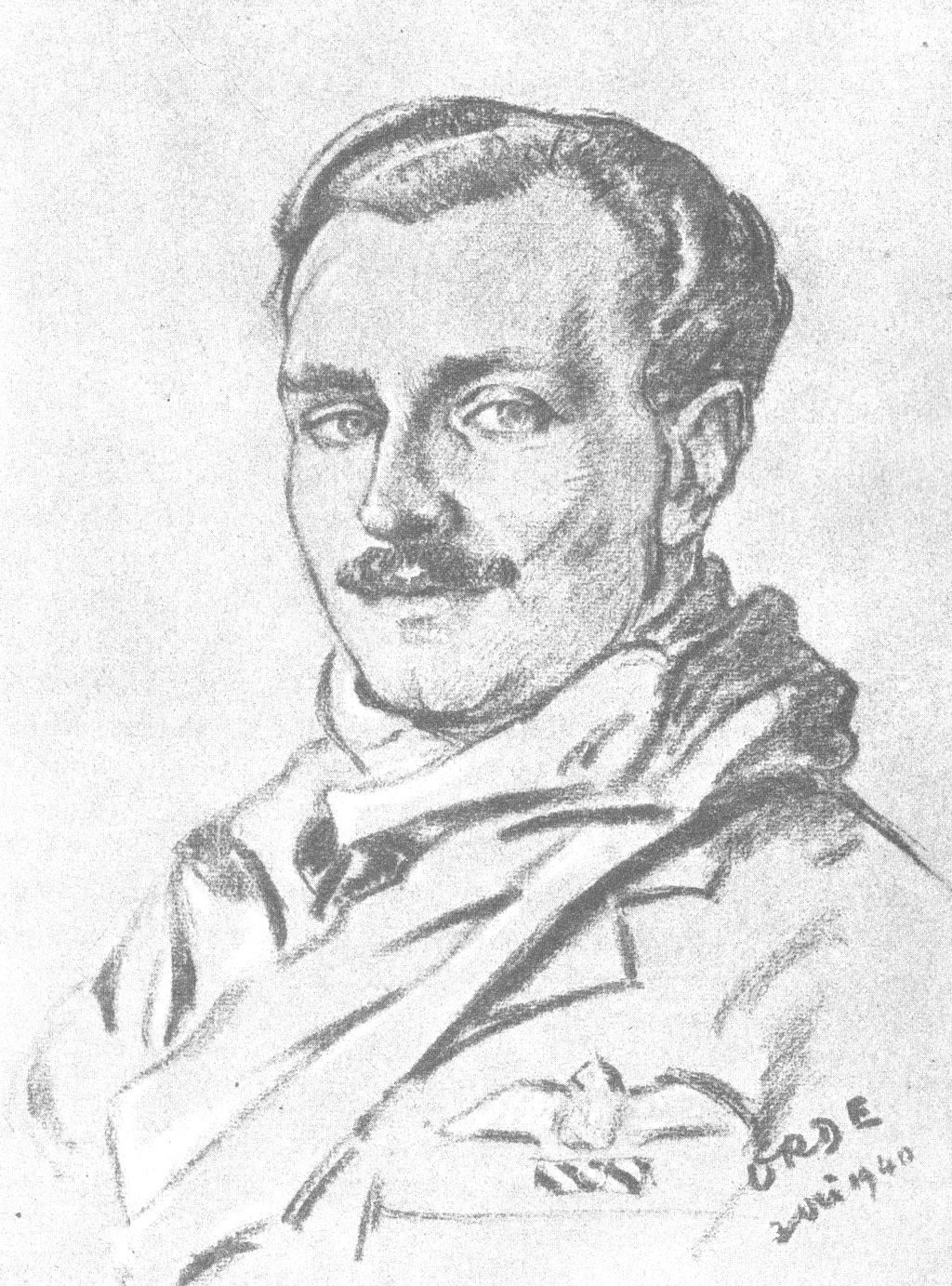
The Battle of Britain is officially regarded in British history to have run from 10 July 1940 to 31 October 1940; though German historians beg to differ seeing it as part of a single campaign from July 1940 until June 1941. At this time Hitler and his regime were aiming at air superiority over the UK in order to force Britain to a negotiated peace settlement, but this was not achieved because the RAF and RCAF successfully fought the Luftwaffe off over the English mainland. This part of our recent history is personified by the sacrifice made by The Few and Squadron Leader McKellar was one of those who notched up all but two of his victories within the last two and a half months of the Battle of Britain.
The daily record of RAF ancestors
It is always fascinating to find records that reveal the lives of our ancestors and so the RAF Operations Record Books (ORBs) on TheGenealogist, which contain diary entries that often mention air force personnel by name, can be particularly insightful for our research. The journal entries, that make up part of these records, reveal details not only of the operations that the men undertook, but also some notes on everyday occurrences that go towards humanising the insight offered to the researcher.
In our example, if we search for Archie McKellar in the ORBs for June 1940 we discover him in the 602 (City of Glasgow) squadron flying Spitfires as a Flying Officer and based in Drem, East Lothian, Scotland. On the 21st June, however, he was promoted to Flight Lieutenant and was then transferred to 605 Squadron, a unit that was equipped with the other famous Battle of Britain aircraft, the Hawker Hurricane.
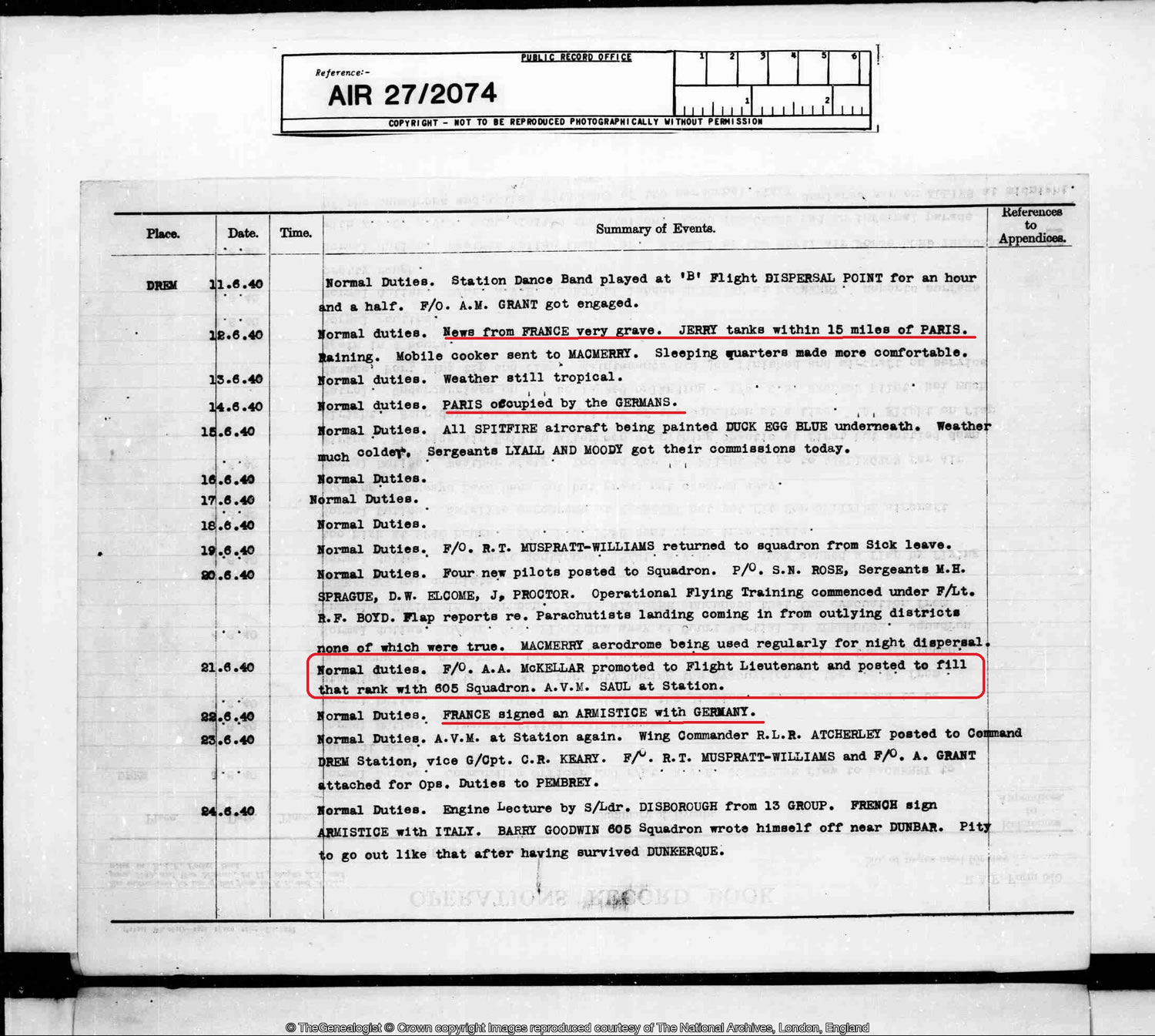
Glancing at the other entries on the same page, from the month before the conflict over British airspace was to begin, we read about the ‘Station Dance Band playing at ‘B’ Flight DISPERSAL POINT for an hour and a half’. A Flying Officer A.M. Grant got engaged and was named in the ORB, the weather was noted as ‘tropical’ on a particular day, a mobile cooker was sent to Macmerry (raising the question as to how they had been cooking in that East Lothian village before this), sleeping quarters were being made more comfortable and the Spitfires had their underneath repainted in Duck Egg Blue to camouflage them in the sky. Another entry tells of ‘Flap reports’ that had been coming in about parachutists landing in outlying districts none of which turned out to be true’ the report writer notes!
More chillingly are the comments for the 12th June 1940: ‘Normal duties. News from FRANCE very grave. JERRY tanks within 15 miles of PARIS.’ Then on the 14th ‘PARIS occupied by the GERMANS’ and on the 22nd June France had signed an armistice with Germany. At this point it must have been obvious to these men that the fight would now be concentrated in the skies above Britain. After fighting back raids across the North of England, they would then be posted as a unit to the South to defend the United Kingdom from its German enemy down there.
On the 10th of July, action began, but it wasn’t until the 11th that the reports started coming in. The day after the Battle of Britain had begun, the squadron to which Archie McKellar had recently joined, reported that the weather had turned wintery and only a Lynx Trainer was able to fly, giving them a day of respite. The 10th, however, had seen much more action as can be seen in the reported success and losses ‘14 aircraft knocked down and twenty-three severely damaged off S.E. Coast yesterday at the cost of two fighters and one Pilot missing.’

Five in a day
Archie Mckellar, would rise to lead his new squadron and become a fighter ace (one who has five victories or more accredited to them). McKellar, however, along with fellow Brit, Ronald Hamlyn, New Zealander, Brian Carbury and Pole, Antoni Głowacki, had the unusual distinction of being more than just an ace. This handful of men had the distinction of achieving the unusual tally of five in the space of just one day, earning the informal designation of “Ace in a Day”. In Archie Mckellar’s case that was on the 7th October 1940 when the ORB for his squadron noted this remarkable success.
Access Over a Billion Records
Try a four-month Diamond subscription and we’ll apply a lifetime discount making it just £44.95 (standard price £64.95). You’ll gain access to all of our exclusive record collections and unique search tools (Along with Censuses, BMDs, Wills and more), providing you with the best resources online to discover your family history story.
We’ll also give you a free 12-month subscription to Discover Your Ancestors online magazine (worth £24.99), so you can read more great Family History research articles like this!
The ORB was compiled at their base at Croydon and October the 7th that year was noted as a very fine day. Three patrols were flown by 605 Squadron’s Hurricanes with the first one encountering Messerschmitts over London. Archie McKellar, by now a Squadron Leader, damaged one enemy plane in that sortie but more success was to come. The ORB then tells us that the second patrol was at 15:00 hours and was ‘remarkable for the success of S/L McKellar.’ The squadron had come across 15 ME 109s with another 40 to 50 more above and behind these. The pilots of 605 Squadron dived down on the 15 Messerschmitts and a few of the German planes from the larger formation above then dived down on them in turn. A dogfight ensued between Westerham and Maidstone in Kent and it was during this aerial combat that Archie McKellar shot down four ME 190s. A later patrol near Biggin Hill and the pilots from 605 encountered four more ME 109s of which S/L McKellar destroyed one his fifth victory in a day and while the ORB only alludes to it with the words referring to his ‘remarkable success’ S/L Archie McKellar was now an Ace in a day!
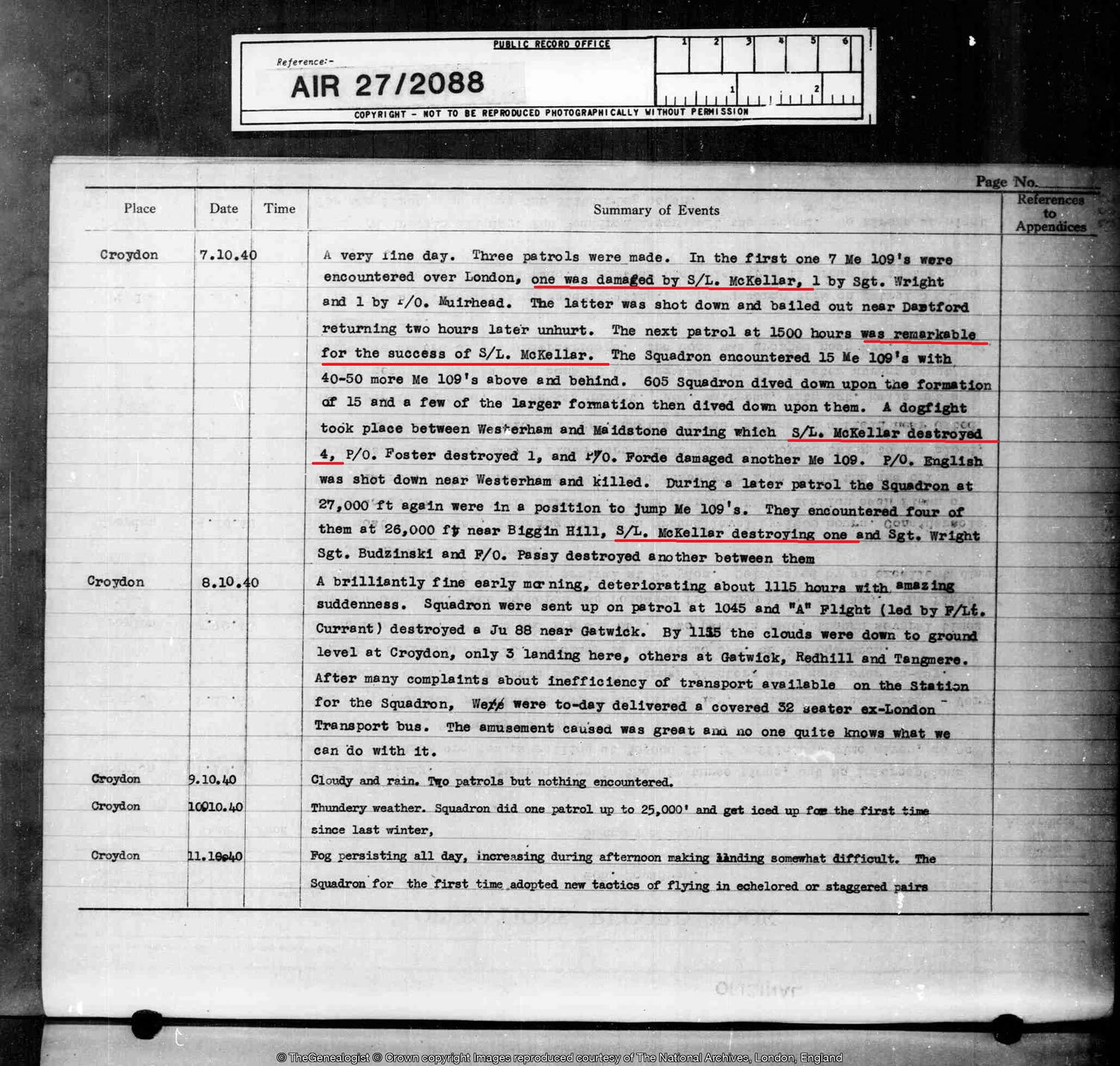
The Battle of Britain, the RAF have always maintained, was fought between 10 July and 31 October 1940. On that basis McKellar was a survivor of the action having notched up 21 aircraft shot down. His Hurricane, P3308, also held the top score for the highest number of kills during the Battle of Britain. Sadly, however, it was the very next day that Squadron Leader Archie McKellar became one of the pilots who paid the ultimate sacrifice. He was flying, as we can tell from the ORB record on TheGenealogist, another Hurricane V6878. As his demise was outside the dates recognised for the Battle of Britain, by one day, he is not one of the pilots commemorated on the Battle of Britain roll of honour in Westminster Abbey. However, the Secretary of State for Air, Sir Archibald Sinclair, visited Glasgow on the 16th January 1941 to deliver a eulogy to the former fighter pilot which was a fitting honour for this one of The Few who lost his life the day after the Battle of Britain ended.
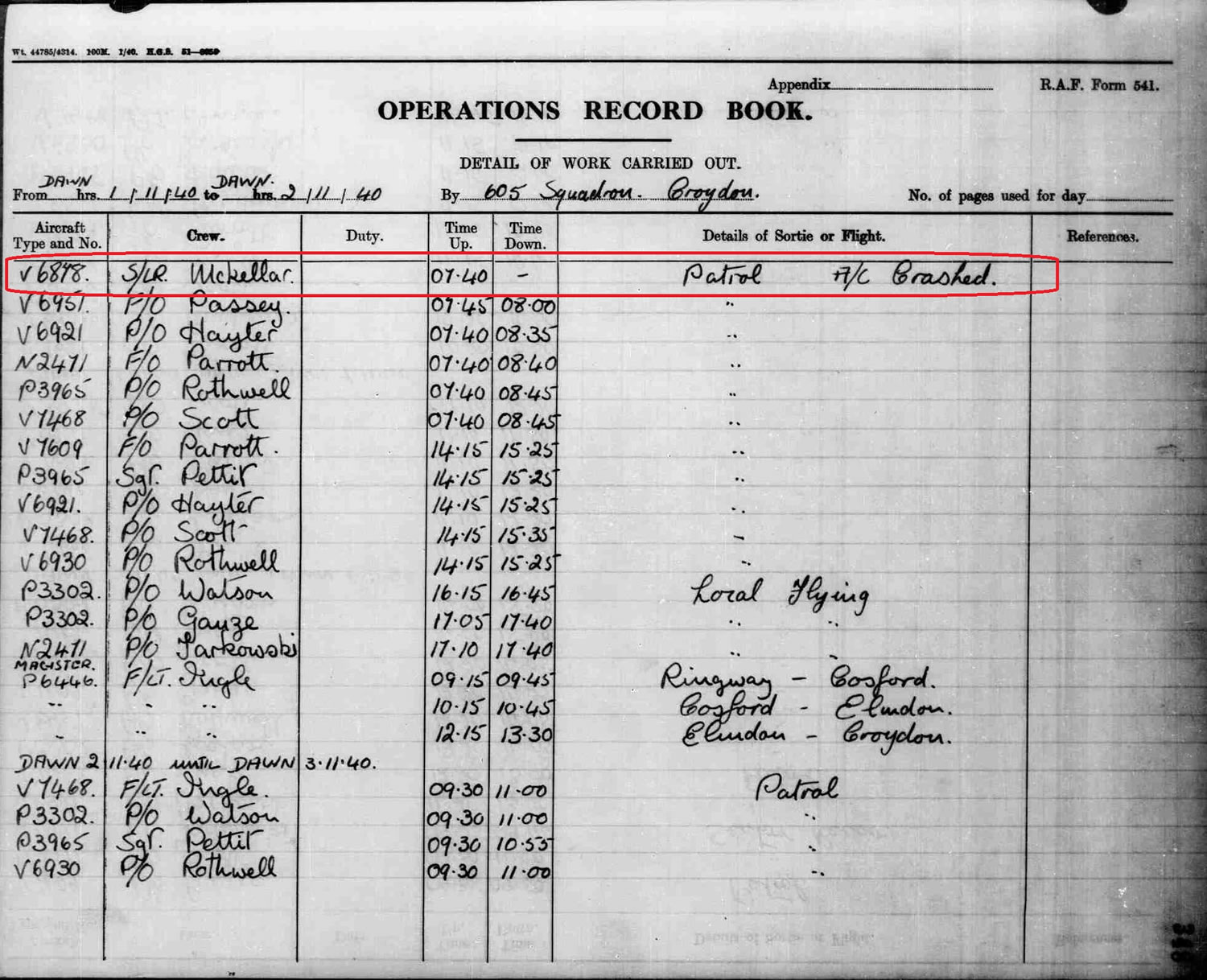
By 1 November 1940 McKellar had recorded 21 victories and not only were all but two of these claimed within the last two and a half months of his life but, ipso facto, they were during the Battle of Britain. His last flight is recorded in the ORB for the squadron on that day when he went on patrol near Faversham and ‘flying into the sun at 25,000 feet’ they came across 12 enemy planes flying North West. The pilots of 605 Squadron turned and dived on the German planes and, in the words of the ORB compiler ‘a most successful encounter ensued.’
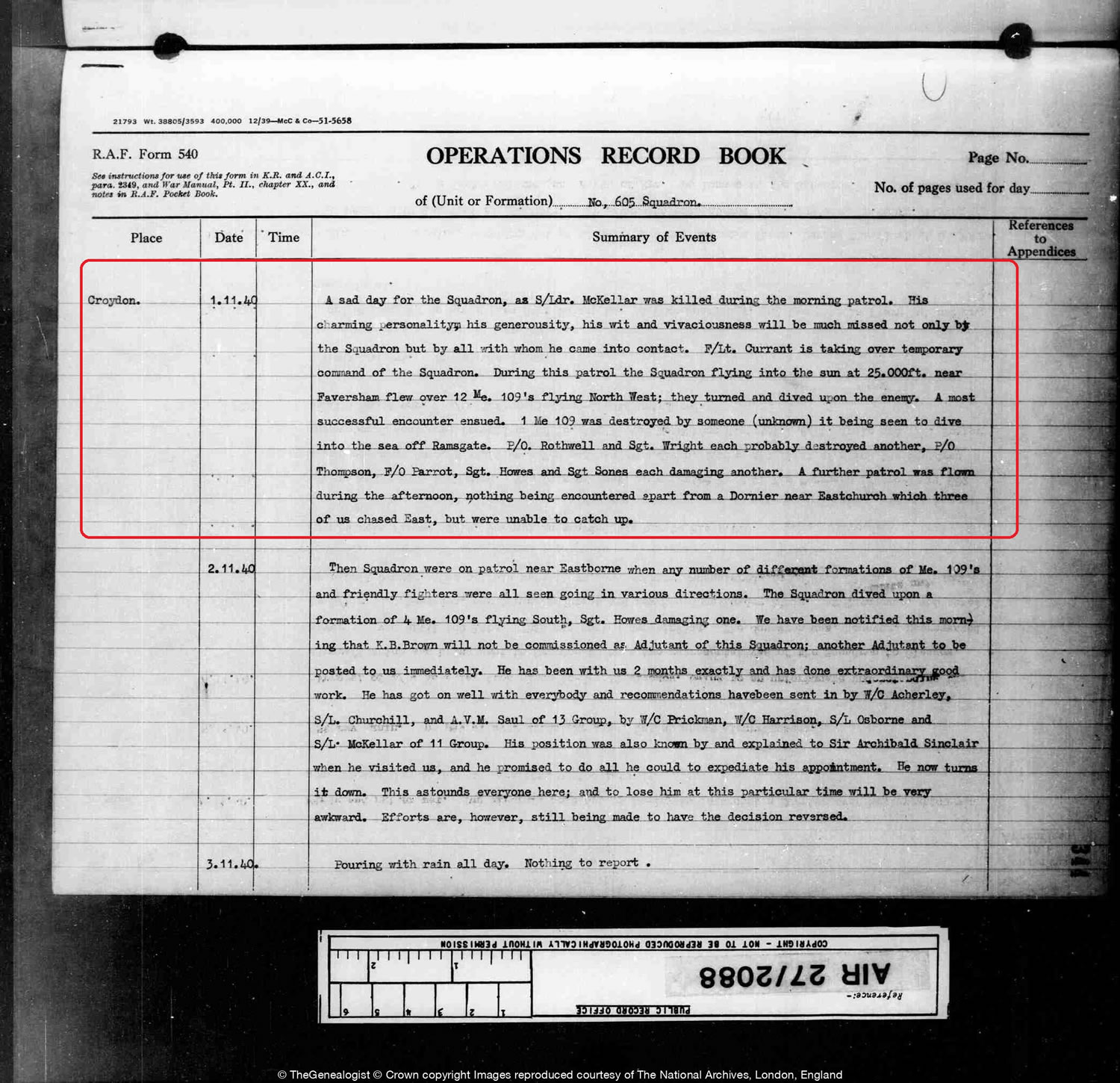
But it is the opening remarks of the day’s report that speak volumes about how Squadron Leader McKellar was thought of by his comrades. ‘A sad day for the Squadron, as S/L McKellar was killed during the morning patrol. His charming personality, his generosity, his wit and vivaciousness will be missed not only by the Squadron but by all with whom he came into contact.’ His previous squadron, the 602, also saw fit to mention his loss in their own ORB for the 1st November, as we can find from a search of the records on TheGenealogist.
‘Most disappointing’
But it was 605 Squadron, where most of his successful victories had taken place and which he led at the time of his death. Reading the entry for the 6 November 1940 in the ORBs for that unit we see that the writer saw fit to record that the funeral of their recent commander took place in Glasgow that day. In restrained words it mentions that owing to an unfortunate understanding an aircraft being sent to take two members of the Squadron to represent 605 at S/L McKellar’s funeral arrived too late in Croydon. The journal compiler sees fit to write: ‘This was most disappointing’. We can only imagine the actual language that was probably used on the Croydon aerodrome that day!
On 8 November 1940 Squadron Leader McKellar’s actions brought a final award in the form of a posthumous Distinguished Service Order (DSO). Further recognition came to McKellar in a Mention in Despatches that was gazetted on 31 December 1940. He was a remarkable warrior in the air defence of Britain.
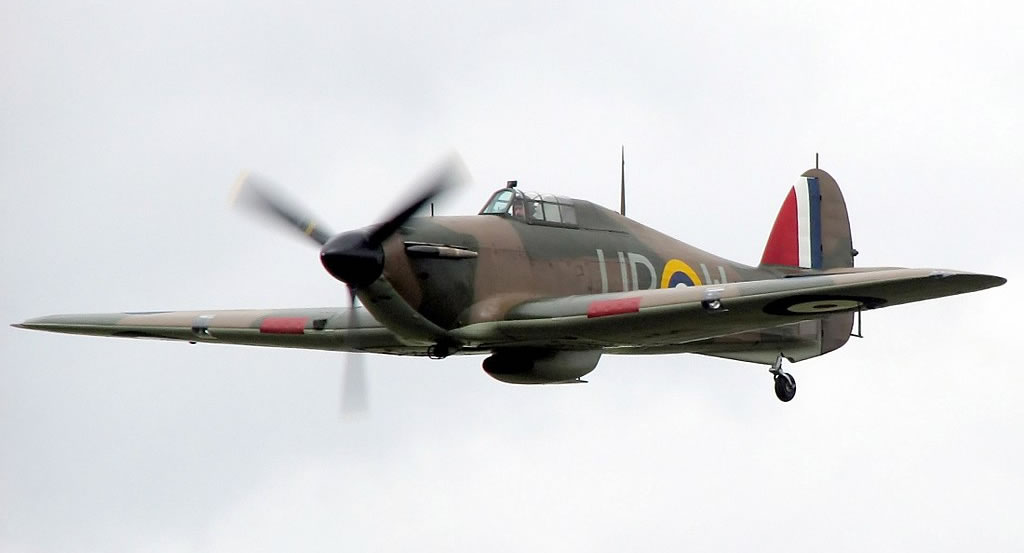
Operations Record Books (ORBs) are a fantastic way to read about airmen who fought for their country in the Second World War, as well as a few ORBs from WW1. At this time when we are marking the 80th anniversary of start of the Battle of Britain TheGenealogist’s military record collection has allowed us to honor the memory of one of The Few, an Ace in a Day, and a man whom the Operations Record Books have told us had a charming personality, was generous, witty and vivaciousness and whom was missed not only by his comrades in the Squadron that he had led, but also by all whom he came into contact with.






